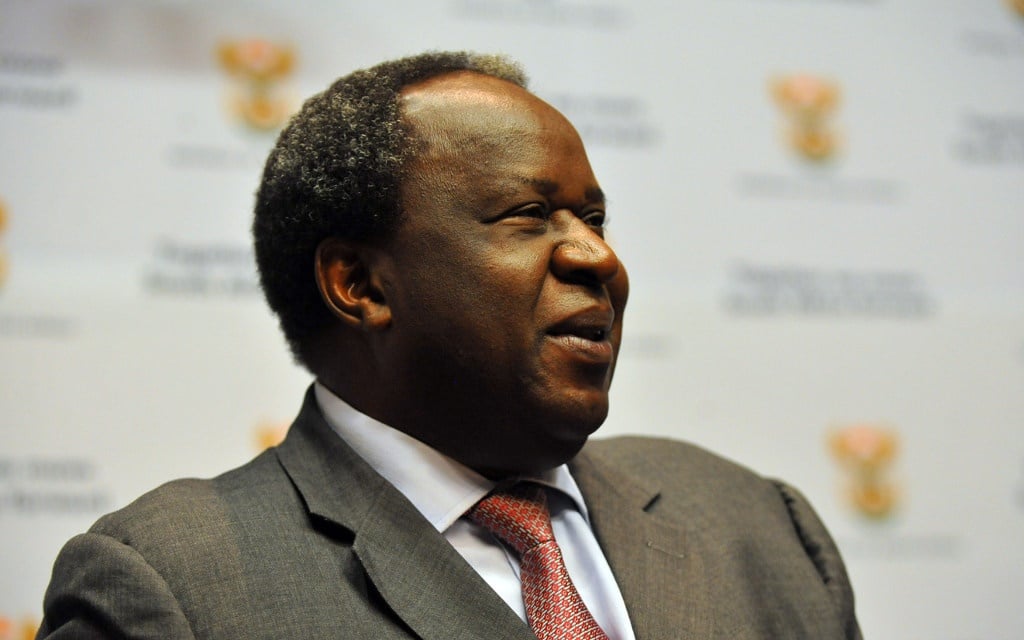
- Deputy minister of Public Enterprises Phumulo Masualle said Finance Minister Tito Mboweni's Medium Term Budget would unpack plans to fund ailing entities including South African Airways.
- Masualle hinted that the markets would have to be considered as the fiscus has exhausted its ability to meet requirements.
- Most of the parastatals under the care of the Department of Public Enterprises were already in bad shape before the pandemic.
The Department of Public Enterprises told Parliament's Portfolio Committee on Public Enterprises that the medium term budget policy statement would shed light on how government planned to support ailing entities, which were rocked by the third and fourth quarter of the 2019-20 financial year.
The medium term budget policy statement was originally set to take place on 21 October, but National Treasury announced on Tuesday evening that it had asked National Assembly Speaker Thandi Modise for a postponement to 28 October.
The speaker's office said on Wednesday that it had assented to the request, pending approval by Parliament's programming committee.
Most of the parastatals under the care of the Department of Public Enterprises were already in bad shape before the pandemic, from ongoing load shedding at Eskom to financial constraints leaving Denel periodically struggling to pay salaries.
Transnet is the only SOE that funds capital expenditure from its own revenue. However, the Covid-19 pandemic, the national lockdown and the restrictions to trade and business that came with these rocked the projections SOEs made for themselves.
Deputy minister of Public Enterprises Phumulo Masualle said while many state-owned entities operated under fraught circumstances before the pandemic hit, Covid-19 was the proverbial straw that broke the camel's back.
"We are going through an economic slump where even legitimate requests for funding and assistance have not been met with the expected response. There are market related difficulties, particularly linked with the advent of Covid, which has had a major impact on the operations of our entities," said Masualle.
South African Airways
Masualle said R19.6 billion was required to implement the ongoing business rescue plan for the national carrier, of which R10.5 billion was urgent.
Asked by committee members where the funding would come from, Masualle said Minister Tito Mboweni's Medium Term Budget Policy Statement would address this question.
"Regarding the R10.5 billion we have been engaged with Treasury to find an answer to the funding needs, including engagements with the markets, banks and other funding agencies to look at how they could come to the party. But it is clear that the fiscus has exhausted its ability to meet this requirement," Masualle said.
Eskom
Public Enterprises Director General Kgathatso Tlhakudi said the impact of Covid-19 was felt at the state-owned entities under the department on both their operational and their financial performance.
Tlhakudi said Eskom's financial projections for the 2020-21 financial year are expected to be revised due to the impact of Covid-19.
"At the end of the first quarter, Eskom's sales volumes declined by seven terawatt hours, as a result revenue declined by R7 billion. Projections to year end are pointing to a decline in the sales volume of 10 terawatt hours and a revenue shortfall of R10 billion for the 2020-21 financial year," said Tlhakudi.
Tlhakudi said the results for the first quarter of the 2020-21 financial year were below budget and that it was unlikely that the budget for the year would be achieved under current liquidity challenges due to the impact of Covid-19.
Tlhakudi said Eskom was still on track to start the process of separating Eskom's transmission business in the unbundling process from December. The department still aims to unbundle Eskom into separate generation, transmission and distribution businesses by the end of 2021.
Denel
Regarding Denel, Tlhakudi said the arms manufacturer's assets are predominantly funded by debt, adding that overreliance on debt and the negative equity position have put Denel in a debt trap.
"Denel has been relying on debt to finance its working capital requirements. Currently Denel pays in excess of R300 million interest costs per annum which adversely impacts the profitability of the company," Tlhakudi said.
He said Denel had a difficult first and second quarter for the 2020-21 financial year due to a combination of factors, including the Covid-19 Pandemic and liquidity challenges.
"As a result, the year-to-date from April to July of 2020, Denel recorded sales of R364 million which is 79% behind the 2020/21 Corporate Plan budget," he said.
He said due to the weak financial position and reduced cash from operations Denel is unable to meet all its financial obligations including the payment of full salaries from May 2020 to date.
Transnet
Tlhakudi said Transnet's performance for the year to date was impacted by the depressed economic climate as well as the Covid-19 pandemic which led to the national lockdown.
"The South African economy contracted by an annualised rate of 2% for the first quarter of 2020 and is expected to contract by a further 9.5% in the year under review," Tlhakudi said.
Tlhakudi said Transnet should continue to execute its funding strategy to fund its own capital expenditure and maintenance programmes to ease pressure on the department and the fiscus.
SA Express
The deputy minister said the impact of Covid 19 accelerated the demise of SA Express as the financial situation deteriorated such that employees’ employment contracts were suspended and no salaries have been paid since the fourth quarter.
